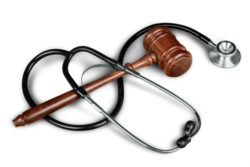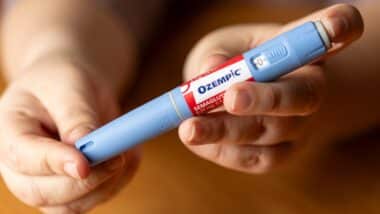 Modern Healthcare reports that new medical malpractice statistics from Johns Hopkins University School of Medicine found that diagnostic errors accounted for 34 percent of medical malpractice claims.
Modern Healthcare reports that new medical malpractice statistics from Johns Hopkins University School of Medicine found that diagnostic errors accounted for 34 percent of medical malpractice claims.
The study looked at 21,743 closed medical malpractice claims within a 10-year span, from 2006 to 2015. Researchers determined 7,379 of the claims were the result of diagnostic mistakes. They also found that 21 percent of the total 55,000-plus malpractice claims were instigated by diagnostic errors. Claims data was provided by Controlled Risk Insurance Co.
“It’s not just inconvenient to have a wrong or delayed diagnosis,” lead author Dr. David Newman-Toker said in a prepared statement. “For many patients, misdiagnosis causes severe harm and expense, and in the worse cases, death.”
Dr. Newman-Toker is the director of the Center for Diagnostic Excellence at Johns Hopkins Armstrong Institute for Patient Safety and Quality.
Medical Malpractice Statistics Focus on Three Diseases
The Society to Improve Diagnosis in Medicine (SIDM) funded the study. SIDM CEO and co-founder Paul Epner said researchers took a particularly close look at the extent of injury that resulted from diagnostic errors for three medical issues: cancer, vascular events, and infection. In analyzing the medical malpractice statistics, researchers found more than 61 percent of all diagnostic mistake medical malpractice claims involved those three maladies. Among that group of patients, more than 74 percent incurred severe injury, disability or death.
Johns Hopkins researchers determined cancer (most often lung cancer) made up 37.8 percent of the diagnostic errors; vascular events (most often stroke) 22.8 percent; and infection (most often sepsis) 13.5 percent. The malpractice awards in these cases totaled $1.8 billion over the decade studied.
Epner said the purpose of the study was to create a game plan to prevent diagnostic errors, most of which appeared to be errors in clinical judgment, according to this study. He said the science of eliminating diagnostic errors is something the SIDM and its coalition of 50-plus medical organizations plans to work on, eventually establishing standardized practices.
“This work showcases that myriad factors contribute to missed and delayed diagnosis and highlights the need for further collaboration across the healthcare system to significantly improve diagnosis and ensure the best possible outcomes for patients,” according to Epner. “The complexity of the diagnostic process and the collaborative approaches needed to improve accuracy mean change will not occur overnight.” Epner also said a variety of factors contribute to missed or delayed diagnoses. He said the path to delivering a proper diagnosis is complex and involves a lot of collaboration.
Efforts include encouraging patients and their families to ask questions, and for the medical community to focus on intervention where harm occurs, pointing to strokes in the emergency room, sepsis in a hospital setting, and lung cancer at the primary care level.
The Agency for Healthcare Research and Quality, a component of the U.S. Department of Health and Human Services, says one of the challenges in addressing diagnostic errors is that there are no measures of diagnostic accuracy. The current measurements of health care quality do not mention diagnostic accuracy, which means a hospital could have excellent quality scores when a patient receives outstanding treatment for an incorrect ailment.
If you or a loved one were injured due to the negligence of another party, and you have recoverable damages, you may have a viable personal injury lawsuit. Get a free evaluation of your potential case by filling out the form on this page now!
ATTORNEY ADVERTISING
Top Class Actions is a Proud Member of the American Bar Association
LEGAL INFORMATION IS NOT LEGAL ADVICE
Top Class Actions Legal Statement
©2008 – 2026 Top Class Actions® LLC
Various Trademarks held by their respective owners
This website is not intended for viewing or usage by European Union citizens.
Get Help – It’s Free
Get a Free Personal Injury Case Evaluation
If you qualify, an attorney will contact you to discuss the details of your potential case at no charge to you.
PLEASE NOTE: If you want to participate in this investigation, it is imperative that you reply to the law firm if they call or email you. Failing to do so may result in you not getting signed up as a client or getting you dropped as a client.
E-mail any problems with this form to:
[email protected].












